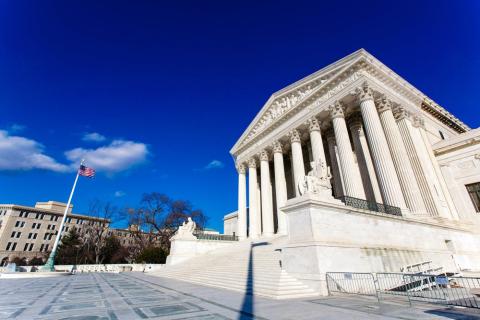Many of the voters who are becoming the most disenchanted with parties are those who live in “one-party states,” and have experienced closed partisan primaries and/or politically gerrymandered districts.
They know how it feels for their vote not to count, having experienced the injustice of being shut out from primary elections or of belonging to a substantial group of politically like-minded people whose votes have been diluted such that they have no representation in Congress.
Most average Americans who are familiar with how partisan gerrymandering works, whether they be Democrats, Republicans or independents, are strongly in favor of any and all actions that will eliminate such gerrymandering, or at least significantly reduce its prevalence.
However, most elected officials, and the active partisans who support them, prefer to focus their energies on gaining control of the redistricting process so that their team can seize the advantage.
In recent oral arguments before the Supreme Court in the Wisconsin partisan gerrymandering case, Gill v. Whitford, Chief Justice Roberts expressed concern about the court meddling in a political question that he feels is best reserved for the legislature.
Among other things, Roberts seems worried that there can never be bulletproof, objective criteria for the court to use and that partisan gerrymandering cases will be perceived by the general public as precisely that: partisan.
Roberts believes nearly all redistricting cases will end up before the Supreme Court, forcing the court, constantly, to engage in partisan bias, thus damaging the integrity and public trust in the court.
Is it lost on Roberts that his position to not intervene is in itself taking a political position?
After all, this is a case where Republicans are alleged to have engaged in egregious partisan gerrymandering, and it’s clear from the oral arguments that the justices who were appointed by Republicans are against the challenge brought by Democratic voters, and the justices who were appointed by Democrats seem inclined to favor the challenge.
Justice Kennedy appears to be the swing vote.
Why wasn’t Roberts opposed to intervening in other “political cases” such as Citizens United, Shelby County, or other such matters, where he voted to strike down laws that harmed Republicans, their interests, or their donors?
And would the Democratic-appointed justices be as eager to create a standard that even the attorney for Appellees struggled to clearly define, if doing so in this case were going against the Democrats instead of favoring them?
Of course, none of the justices were outright in favor of partisan gerrymandering; they seemed to range from declaring it “distasteful,” but perhaps not actionable by the court, to outright “concerning” and striking at the heart of “the precious right to vote,” fundamentally undermining our democracy.
Yet, even though most would likely agree that this particular case appears to have crossed some kind of line, it’s yet to be determined whether it’s a line they’re comfortable defining and giving a new constitutional cause of action to.
As an independent, there were two things that stood out to me as surprising in the transcript of the oral arguments:
1. It seemed to be a matter of concession that a map drawn by an independent redistricting commission, a court, or a divided legislature would automatically, de facto, be off the table to a partisan gerrymandering challenge.
2. Appellee’s attorney, as a description of their claim, quoted a part of Justice Kennedy’s concurrence in the Vieth case, as follows:
"First Amendment concerns arise where a state enacts a law that has the purpose and effect of subjecting a group of voters or their party to disfavored treatment by reason of their views. In the context of partisan gerrymandering, that means that First Amendment concerns arise where an apportionment has the purpose and effect of burdening a group of voters' representational rights. "
The first was surprising because I recently read the book, Ratf**ked: The True Story Behind the Secret Plan to Steal America’s Democracy, by David Daley, wherein, among other things, it documents how independent redistricting commissions don’t solve everything since they’re still influenced behind the scenes by partisan power players. Thus, they may only yield slightly better results, with remedies that are often still unacceptably inequitable.
The second was surprising because of the obvious question it raises: Don’t independent voters and third party voters qualify as a group of voters who are constantly subject to disfavored treatment, and don’t all apportionments – controlled by parties that disregard the interests of independent voters – somehow burden our representational rights?
I’m sure that after a while, I start to sound like a broken record when it comes to the need for nonpartisan reform, but couldn’t the court avoid a lot of its concerns about taking on “political questions” if our entire democratic system weren’t controlled by two ever-warring parties?
Wouldn’t redistricting lose some of its partisanship if parties weren’t the primary gatekeepers of our elections, wherein the majority party gets all of the spoils -- chairmanships, the upper hand in fundraising, control of all committees, including redistricting, and more?
Partisan gerrymandering is certainly an egregious abuse of power that needs to be stopped; and if the court can develop a clear, consistent, workable and objective standard, I hope it will do so.
Nonetheless, the root of the problem lies in a system that gives parties – not the American people – control over our elections, and thus our government.
Photo Credit: Tinnaporn Sathapornnanont / shutterstock.com
